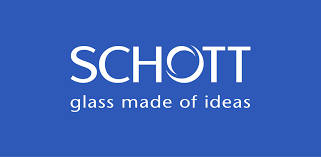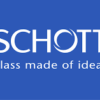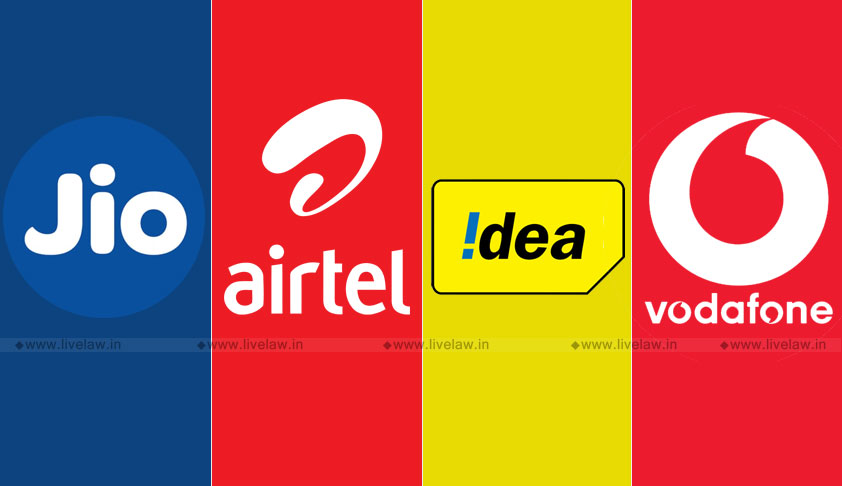
Introduction
The Supreme Court of India, in a significant judgment dated 13.05.2025 in a civil appeal No. 5843/2014 titled Competition Commission of India vs. Schott Glass India Pvt. Ltd. & Anr., decided on 13.05.2025, has inter alia mandated that an “effect based analysis ” is integral in an inquiry into allegations of abuse of dominant position under Section 4 of the Competition Act, 2002 ( the Act) and that a “form-based” or procedural approach will not suffice. The Apex Court while upholding the order passed dated 02.04.2014 passed by the erstwhile Competition Appellate Tribunal (COMPAT) (which quashed the original order dated 29.03.2012 passed by the Antitrust regulator, the Competition Commission of India (CCI)) held that , the Antitrust regulator/CCI must satisfy itself that the alleged unliteral abusive conduct by a dominant firm actually causes or is likely to cause an appreciable adverse effect on competition (AAEC) in India. The Court also reiterated that the observance of principles of natural justice is mandatory during investigation and, in particular, the denial of cross -examination would vitiate the findings in such investigation.
On merits, the Apex Court held that, inter alia, slabbed based target rebate scheme does not impose unfair or discriminatory conditions and an alleged differentiation in grant of functional rebates based on objective commercial justification, which is universally made available, cannot be termed as unfair or discriminatory constituting an abuse of dominant position under Section 4(2) (a) & (b) of the Act.
Background of the Case
The regular second statutory appeal before the Apex Court was preferred by the CCI[1] under the Section 53T of the Act, which challenged the common order dated 02.04.2014, passed by the COMPAT. The proceedings were initiated from an information filed by Kapoor Glass India Pvt Ltd. (“informant/ Kapoor Glass”) before the CCI on 25.05.2010, wherein it was alleged the Schott Glass India Pvt Ltd. (“Schott”), a prominent, German USP-1 borosilicate glass tubing manufacturer had abused its dominant position by offering exclusionary volume-based discounts, imposed discriminatory contractual terms, and, on occasions refused to supply. The CCI based on the information formed a prima facie opinion under Section 26(1) of the Competition Act, 2002 (“the Act”) and directed the Director General (“DG”) to inquire into the allegations and submit the investigation report. The DG submitted the investigation report dated 14.3.2011 finding that Schott had abused of dominant position in violation of Section 4 of the Act. The CCI after considering the investigation report , objections filed by Schott thereto and hearing the parties, by a majority order dated 29.03.2012, held Schott India guilty for abusing its dominance and levied a penalty equal at a rate of 4% of its average of 3 years turnover equivalent to about Rs 5.66 crores and issued a cease-and-desist order against it from doing any discriminatory practices to any of the converters. Schott India preferred statutory appeal against the order of the CCI before the COMPAT. COMPAT by its impugned order dated 02.04.2014 allowed the appeal and quashed the findings of the CCI and also imposed a cost of Rs 1,00,000/- on the informant.
Brief Facts –
The information was filed against Schott which is a wholly owned subsidiary of Schott Glaswerke Beteiligungs-GmbH, which in turn is wholly owned by Schott AG of Mainz, Germany. In May 2008, a Schott group entered a joint venture with Kaisha Manufacturers, incorporating Schott Kaisha Pvt. Ltd., (“Schott Kaisha”) the country’s largest converter. Further, in 2008 Schott India and Schott Kaisha executed a three-year agreement (“LTTSA”) under which the converter agreed to source at least 80% of its requirements, approximately thirty per cent of Schott India’s capacity, in consideration of a price concession over the slabbed rate, a three-year price freeze and priority dispatch in periods of tight supply.
Schott was active in both the markets, the upstream being the market for the manufacture and sale of neutral USP-I borosilicate glass tubing, whether clear or amber, and the downstream market being the market for the sale of pharmaceutical containers ampoules, vials, cartridges and syringes made by converters. The first market supplies the raw material; the second transforms it into finished goods. To secure economies of scale and steady furnace utilization, Schott offered two rebate schemes:
- Target (volume) rebates: slabbed discounts, credited quarterly, rising with aggregate annual purchases of NGC and NGA.
- Functional rebates: an eight-per-cent allowance extended to converters that (i) met annual purchase plans, (ii) refrained from using Chinese tubing, and (iii) adhered to “fair-pricing” commitments in their container sales.
The said schemes of Schott were alleged before the CCI to be abusive in nature and aimed at foreclosing competition in the market. Specifically, Kapoor Glass, the informant, contended that Schott’s rebate structures and agreements effectively tied customers, restricted access to alternative (and cheaper) sources such as Chinese tubes, and provided preferential treatment to its affiliate, Schott Kaisha, thereby distorting the competitive landscape. It was further alleged that Schott rationed the supply of tubes to independent converters while meeting the full requirements of Schott Kaisha, indicating discriminatory conduct intended to favor its related entity and undermine rivals.
Issues framed by the SC-
The Apex Court, after hearing the Counsels of the parties, framed the following six issues .
- Whether the target-discount scheme of Schott amounts to discriminatory or exclusionary pricing in contravention of Sections 4(2)(a) and 4(2)(b) of the Act?
Schott India implemented a uniform rebate ladder for all converters, with slabs of 2%, 5%, 8%, and 12%, based solely on the aggregate annual tonnage of Neutral Glass Clear and Neutral Glass Amber procured. The rebate applied retroactively to the entire yearly turnover once a slab threshold was met, irrespective of whether the volume was achieved through one or multiple orders. Larger buyers like Schott Kaisha, with over 3,000 tons offtake, routinely qualified for the top 12% rebate, while smaller converters accessed lower slabs. These slab rates were alleged to be in the nature of the discriminatory or exclusionary pricing contravening Sections 4(2)(a) and 4(2)(b) of the Act.
However, the Hon’ble Supreme Court, referencing the CJEU[2] ruling in British Airways plc v Commission (Case C-95/04 P, 15 March 2007), held that such a scheme was not “unfair or discriminatory” under Section 4 of the Competition Act. The Court clarified that these terms require proof that materially similar transactions were treated differently without objective justification. Also, the Court accepted Schott’s rationale that glass furnaces run at 1600°C and cannot be shut down periodically without damaging the infrastructure. Thus, high and stable volumes are essential for efficiency and recovery of capital costs. The rebate scheme helped pass scale economies to customers, benefiting the pharmaceutical sector.
Finally, the Court was of the view that there was no evidence that the rebate system foreclosed market access or restricted output under Section 4(2)(b)(i), making it a commercially justified and lawful incentive mechanism.
- Whether the functional-discount / “no-Chinese” Scheme (including TMLA arrangement) imposes unfair or discriminatory conditions under Sections 4(2)(a) and 4(2)(b) of the Act?
Between FY 2007–08 and 2009–10, Schott implemented a uniform “functional rebate” scheme offering an 8% rebate to converters who: (i) met annual purchase plans, (ii) refrained from using Chinese tubing, and (iii) complied with traceability and fair-pricing obligations. From 1 April 2010, these conditions were formalized under a Trade-mark License Agreement (TMLA) and Marketing Support Agreement, which granted a royalty-free License to emboss the “SCHOTT” mark in exchange for limited inspection rights and a ₹70 lakh bank guarantee. Only one converter executed the TMLA.
This scheme was alleged to be unfair and discriminatory by the informant before the CCI. However, the Supreme Court held that to attract Section 4(2)(a) of the Competition Act, 2002, it must be shown that commercially equivalent transactions were treated unequally. However, data from FY 2008–09 to 2011–12 showed all converters performing similar functions received the same 8% rebate, with variation only in timing of credit. The temporary “no-Chinese” clause was objectively justified by safety concerns and withdrawn by 31 March 2010. Allegations of foreclosure under Section 4(2)(b)(i) were also dismissed as no evidence of such foreclosure was produced during the investigation/inquiry . The Court observed that the market indicators depicting the exiting entity namely Nipro-Triveni’s increased share, rising imports of Neutral Glass Clear, new entrants like Parenteral and SVM Glass, and a 38% rise in downstream output accompanied by improved converter margins demonstrated robust competition.
Also, the Court observed that ₹70 lakh guarantee was triggered only upon proven trademark misuse, and converters voluntarily opted out of the scheme without penalty. The inspection rights were limited and non-intrusive. In conclusion, the Court found the rebate scheme and its successor TMLA agreement to be non-discriminatory, and objectively & commercially justified, and devoid of exclusionary effects—thus not violative of Section 4(2)(a) or 4(2)(b)(i) of the Act.
- Whether the LTTSA with Schott Kaisha produced a margin-squeeze proscribed by Section 4(2)(e) of the Act?
It was alleged that Schott engaged in a margin squeeze by narrowing the gap between the input costs of independent converters and the downstream selling price of Schott Kaisha, thereby foreclosing competition. Under the Long-Term Tubing Supply Agreement (LTTSA), Schott Kaisha undertook to source at least 80% of its aggregate tubing requirements from Schott India over three financial years. In exchange, it received (i) a two-percentage point rebate above the standard slab, (ii) a price freeze until 31 March 2011, and (iii) priority dispatch during periods of constrained furnace capacity. This arrangement was alleged to be a means by which Schott leveraged its dominant position in the upstream tubing market to strengthen Schott Kaisha’s position in the downstream pharmaceutical container market, in violation of Section 4(2)(e) of the Competition Act, 2002.
However, the Supreme Court, relying on TeliaSonera Sverige AB v Konkurrensverket (CJEU, Case C-52/09, dated 17 February 2011), reaffirmed that three cumulative conditions must be met to establish a margin squeeze under Section 4(2)(e): (i) the dominant firm must operate in the downstream market; (ii) the wholesale-to-retail spread must be insufficient to allow an equally efficient competitor to compete; and (iii) the margin compression must result in actual or likely competitive harm. Upon evaluation, the Court held that none of these conditions were satisfied.
The Apex Court found that as Schott did not operate in the downstream market; the pricing spread allowed rivals to maintain sustainable margins; and there was no evidence of competitor exit, price elevation, or market foreclosure. The arrangement, in the Court’s view, reflected a commercially rational bulk-purchase rebate structure, accessible to any converter able to match Schott Kaisha’s volumes and planning horizon. Accordingly, the LTTSA was held not to violate Section 4(2)(e) of the Act.
- Whether Schott India tied or bundled NGA and NGC tubes, thereby breaching Section 4(2)(d) of the Act?
The Supreme Court, relying on Microsoft Corp. v. Commission of the European Communities (Case T-201/04 dated 17 September 2007), held that Section 4(2)(d) of the Competition Act, 2002 is attracted only when four essential conditions are met : (i) the tying and the tied products are two separate products and the dominant undertaking supplies both products , (ii) the undertaking concerned is dominant in the market for the tying product (iii) the undertaking concerned does not give customers a choice to obtain the tying product without the tied product , and (iv) the practice in question forecloses competition in the tied product market.
The Court found that Neutral Glass Amber (NGA) and Neutral Glass Clear (NGC) of Schott were not distinct products but close substitutes. Even assuming they were distinct, the Court held that the evidence of coercion was insufficient.
It was found that the CCI to prove element of coercion had relied on witness statements from three converters claiming Schott insisted on combined purchases. However, the Court noted that these witnesses were never offered for cross-examination despite repeated requests significantly weakening the evidentiary value of these statements. Further, since none of the rival tube makers exited the business , the indispensable element of foreclosure of competition was absent.
The Court also accepted Schott’s explanation that aggregating NGA and NGC purchases ensured furnace stability and production efficiency. Thus, finding no tying, no foreclosure, and an objectively justified rebate scheme, the Court held that there was no contravention of Section 4(2)(d).
- Whether an effects-based (harm) analysis is an essential component of an inquiry under Section 4 of the Act, and, if so, whether it was omitted in the present case?
The Apex Court reiterated that mere dominance under Section 4 of the Act is not unlawful. What is prohibited is its abuse. The Court emphasized that abuse must be established through evidence of actual or likely harm to competition, not merely by pointing to conduct that fits within a listed category. Drawing from its earlier landmark judgment in Rajasthan Cylinders v. Union of India, the Court reaffirmed that even presumptions of anti-competitive effects (as under Section 3(3)) are rebuttable—and so, under Section 4, there can be no automatic or irrebuttable assumption of abuse.
Drawing reference to the legislative history under the Raghavan Committee Report (2000), the EU judgment in the case of Intel[3], CCI’s own decision in Indian National Shipowners Association Vs. ONGC[4] and its own judgment in the Excel Crop Care[5] case, and rejecting the reliance placed by the CCI Counsel on the Fast Way Transmission[6] case , the Apex Court stressed that an “effects-based” analysis is mandatory, meaning the CCI must show how the alleged conduct harms competition whether through price increases, restricted output, or exclusion of rivals. It criticized the CCI for failing to do so, noting that the CCI had relied on outdated evidence and ignored data showing stable prices and healthy competition. Ultimately, the Court upheld the COMPAT’s decision to set aside the CCI’s penalty, reinforcing that market dominance alone is not a sin—only its anti-competitive abuse is.
- Whether the investigation and the Commission’s order are vitiated by denial of cross-examination and allied breaches of natural justice?
The SC held that the CCI’s refusal to allow Schott the right to cross-examine adverse witnesses amounted to a serious violation of natural justice. The Court underlined that while the DG enjoys wide investigative powers under the Act, those powers must respect the adversarial principle that evidence used against a party must be open to challenge.
Citing Section 36(2) of the Act and Regulation 41(5) of the erstwhile CCI (General) Regulations, 2009, the Court stressed that the right to cross-examination is embedded in the law itself. It found that the DG had relied on statements from converters who were commercially averse to Schott India, without conducting any independent verification or offering Schott India a fair opportunity to question them.
The SC noted that the DG and CCI based their findings largely on these untested statements, despite Schott India’s repeated requests for cross-examination—both in writing and at the oral hearing. The CCI rejected these requests on procedural technicalities, a move the Court found unjustified.
Quoting prior precedents such as Cadila Healthcare[7], the Court reiterated that denial of cross-examination, especially where findings are based on oral statements, fatally taints the proceedings. It added that the CCI’s reliance on selectively curated data, compiled from these disputed statements, could not stand without adversarial scrutiny.
Importantly, the Apex Court also referred to a 2024 amendment to Regulation 41(2) of the CCI (General) Regulations, 2024, which now explicitly mandates that if the DG relies on oral evidence, cross-examination is mandatory.
Thus, the Apex Court agreeing with the COMPAT decision held that CCI order dated 29.03.2012 deserved to be quashed on account of violation of natural justice alone. Accordingly, the Supreme Court affirmed the COMPAT order dated 02.04.2014 and dismissed the CCI’s appeal. Incidentally, while also dismissing the appeal filed by the informant, Kapoor Glass, the Apex Court imposed an enhanced cost of Rs, 5,00,000/- (Rupees Five Lakhs) to be paid by the informant to Schott, within 8 weeks from the date of the judgment.
Comment: This is another landmark judgment from the Hon’ble Supreme Court though it came albeit late after a period of almost 11 years! The Apex Court in the judgment has settled the jurisprudence on one of the most crucial aspects of enforcement of the competition law in India, relating tom the test of determination of actual “abuse” of dominance, by mandating the “effect-based analysis “as against the “form based “approach being followed by the CCI till date in all of its orders. The form-based approach of the Commission emanated from the incorrect and injudicious interpretation of the language used in Section 4 of the Act, which, though, due to absence of the requirement to show AAEC, in letter at least , seemed to show as if effect on competition was not required to be proved once dominance was established and the unilateral conduct fitted into any of the 5 prohibited categories mentioned in Section 4(2) of the Act. This, somewhat bureaucratic approach, was rejected by the erstwhile COMPAT in this important case and having reaffirmed the same, the Hon’ble Supreme Court has now sealed it as mandatory for future compliance by the CCI. Besides, the reiteration of the procedural fairness by mandating cross examination of witnesses by the DG during the investigation, the Supreme Court has not only clarified the procedure to be followed but also upheld the need for the observance of “due process of law” even in economically oriented laws like the Act.
#Schott # Abuseofdominance
[1] As well as by Kapoor Glass Pvt Ltd. The Informant, who had filed information against Schott Glass making allegations of abuse of dominance and succeeded before CCI. Civil Appeal No. 9998/2014 also decided by the same common judgment dated 13.5.2025.
[2] Court of Justice of the European Union
[3] Intel Corporation Inc. Vs. European Commission (Case C-413/14 P, dated 06 September 2017)
[4] (2019) SCC Online CCI 26.
[5] (2017) 8 SCC 47
[6] (2018) 4 SCC 316
[7] 2018 SCC Online Del 11229







